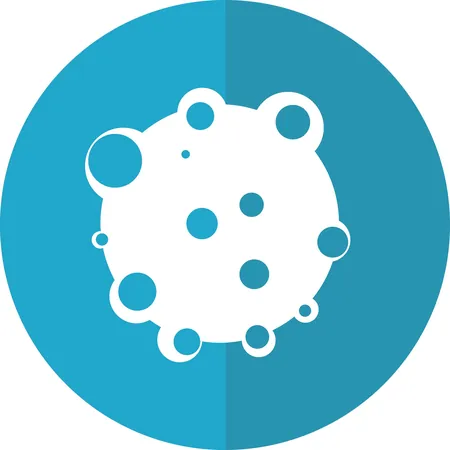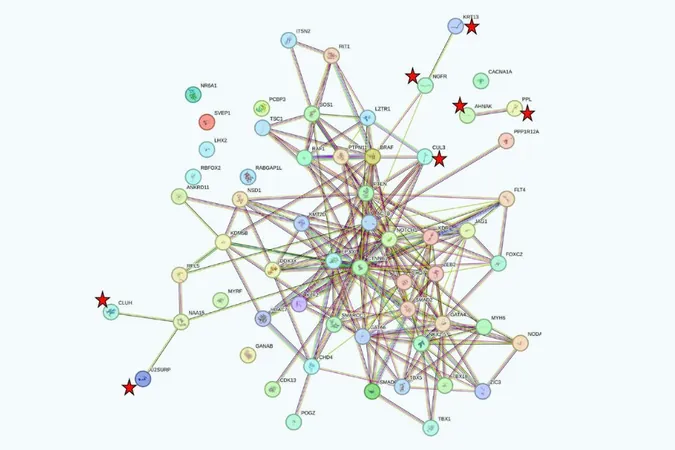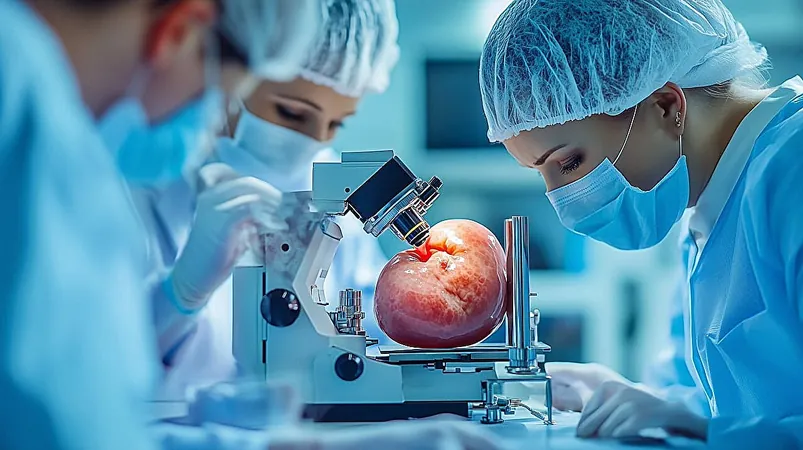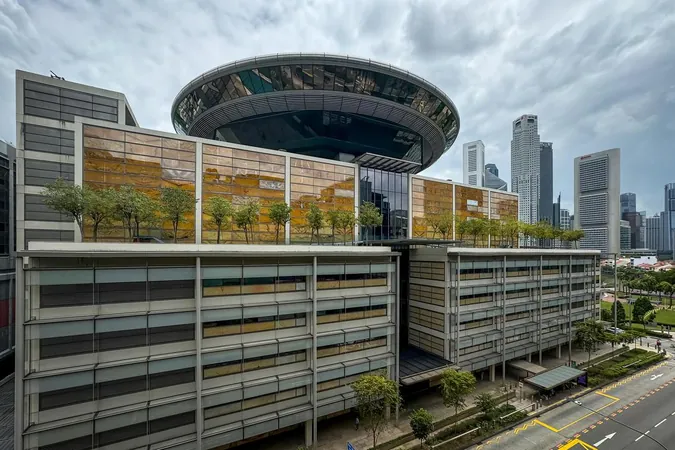
The Hidden Truth Behind Tumor Formation: Are Mutations Enough?
2025-03-26
Author: Yu
Introduction
Recent research out of City of Hope has unveiled groundbreaking insights into the processes of tumor formation, revealing that while cell mutations are a critical factor, they are not sufficient on their own to cause cancer. This study, published in *Cancer Discovery*, addresses a long-standing question in the scientific community: Is it solely the presence of mutated cells that leads to cancer?
Key Findings
Lead researcher Dr. Yun Rose Li, M.D., Ph.D., emphasizes the necessity of understanding not just mutations—whether inherited genetically or acquired through lifestyle choices—but also the additional factors that catalyze tumor growth. One of these key factors is chronic inflammation, which acts as a significant trigger for the development of malignant tumors.
“Our current focus on preventing mutations, such as encouraging smoking cessation and minimizing exposure to environmental pollutants like plastics and heavy metals, is vitally important,” Dr. Li notes. “However, our findings highlight the urgent need for cancer prevention strategies that also address the biological mechanisms—such as inflammation—that can spark tumor development.”
The Connection Between Smoking and Tumor Formation
In fact, the study illustrates that not all individuals who smoke will develop lung cancer. While smoking may initiate the mutation process, it requires a secondary inflammatory trigger to culminate in tumor formation. By understanding these intricate dynamics, personalized risk assessment tests could be developed for more comprehensive and effective cancer prevention.
Importance of Inflammation
Dr. Li points out that mutations in cells are inevitable due to either environmental factors or random cellular processes. “It’s crucial for the public to understand that while avoiding mutagenic hazards is important, steering clear of factors that lead to chronic inflammation—like high-fat diets or obesity—might be even more significant. Inflammation is essentially the ignition source for cancer,” she explains.
Other contributors to chronic inflammation include excessive alcohol consumption, sedentary lifestyles, chronic stress, certain autoimmune disorders, and an imbalance in gut microbiota.
Research Methodology and Findings
In their studies, researchers utilized advanced sequencing techniques to delve into inflammation-driven tumor models, replicating historical experiments from the 1950s. Their approach involved administering two drugs: the first induced mutations, and the second instigated localized inflammation. Results indicated that tumor formation occurs when these processes occur sequentially, showcasing that the immune system often fails to eliminate mutated cells.
Whole genome sequencing confirmed that the initial mutations resulted from the inflammatory carcinogen and underscored that neither agent alone was capable of provoking tumor development. Astonishingly, even a single low-dose exposure to the mutagenic agent during fetal development was sufficient to trigger mutation types that could lead to tumors later in life, once exposed to inflammatory signals.
Conclusion and Future Research
As Dr. Li explains, “Our research reveals that while the first exposure to a mutagen may set the stage for mutations, it is the presence of a second signal—namely inflammation—that promotes tumor development.” Notably, while the research focused on skin cancer models, its implications expand to various cancers associated with age and lifestyle.
The researchers aim to further investigate the cellular mechanisms behind tumor promotion. Dr. Li plans to examine how metabolic dysfunction interacts with the epigenome, potentially creating conditions conducive to the awakening of latent mutated cells.
“By enhancing our understanding of how tumor promotion operates, I hope this research can lead to innovative strategies for cancer prevention,” Dr. Li concludes. This research not only reshapes our understanding of cancer but also paves the way for future breakthroughs in preventive medicine.





 Brasil (PT)
Brasil (PT)
 Canada (EN)
Canada (EN)
 Chile (ES)
Chile (ES)
 Česko (CS)
Česko (CS)
 대한민국 (KO)
대한민국 (KO)
 España (ES)
España (ES)
 France (FR)
France (FR)
 Hong Kong (EN)
Hong Kong (EN)
 Italia (IT)
Italia (IT)
 日本 (JA)
日本 (JA)
 Magyarország (HU)
Magyarország (HU)
 Norge (NO)
Norge (NO)
 Polska (PL)
Polska (PL)
 Schweiz (DE)
Schweiz (DE)
 Singapore (EN)
Singapore (EN)
 Sverige (SV)
Sverige (SV)
 Suomi (FI)
Suomi (FI)
 Türkiye (TR)
Türkiye (TR)
 الإمارات العربية المتحدة (AR)
الإمارات العربية المتحدة (AR)